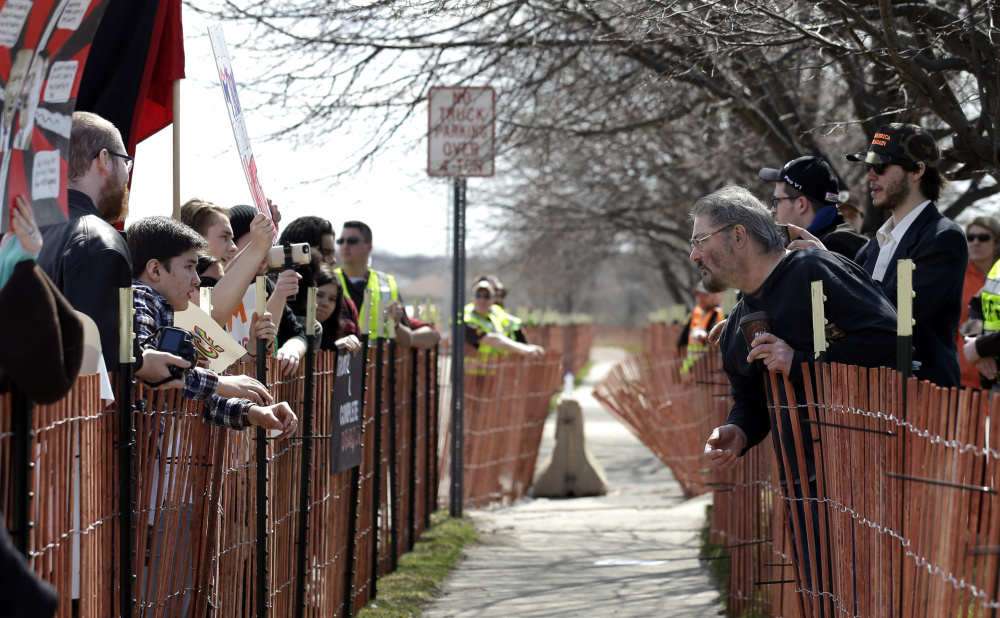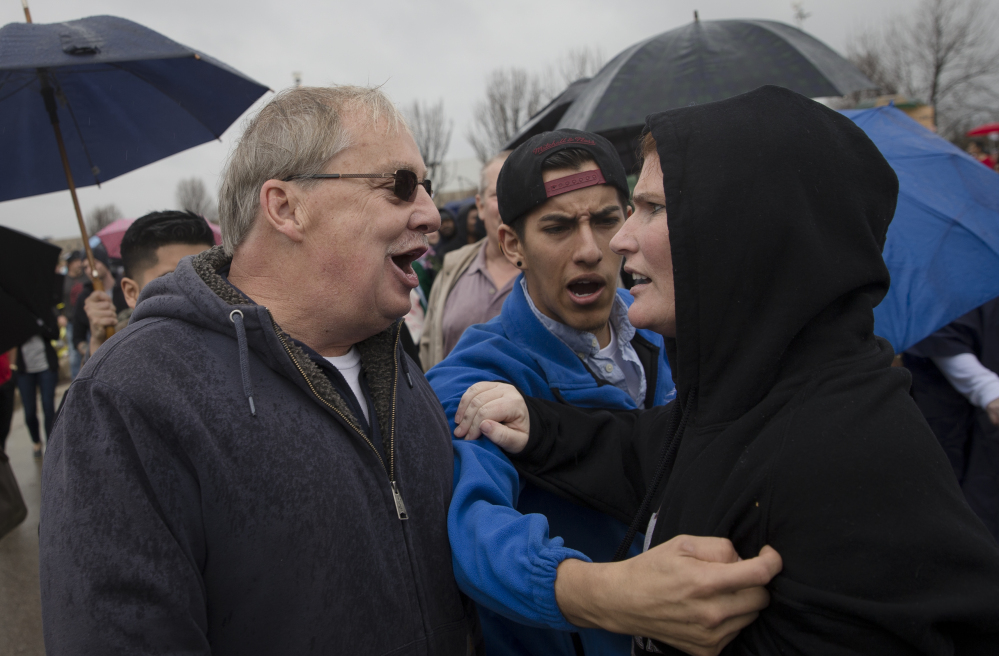WASHINGTON — Nearly half of Republicans regard Democrats as more “immoral,” “lazy” and “dishonest” than other Americans; seven in 10 Democrats view Republicans as “more closed-minded.”
And altogether, about half of respondents in a new poll said the other side makes them “angry” or “afraid.”
While Donald Trump and Hillary Clinton suffer from unfavorable images that are worse – in Trump’s case, much worse – than previous presidential hopefuls, it’s not simply because of their own words and deeds. Their unpopularity exists in a political environment increasingly defined by voters’ negative views of the other side.
The extent of the negativity is central to a detailed survey of the electorate from the Pew Research Center, which found that anger and fear of the opposing political party increasingly drive how American voters think about politics.
Indeed, the survey found, negative perceptions about the other side have emerged as a key motivator for voters, often outranking even how much they believe in what their own party stands for.
This is not politics as usual. Although partisans have long harbored some dislike of the opposition, voters’ views of the other party are now more negative than at any time in the nearly quarter of a century Pew has asked about them, the new study found.
On both sides, majorities now express not just unfavorable, but “very unfavorable” views of the opposing party, up from about one-in-four who felt that way in 2000.
And in both parties, about four in 10 said they view the other side’s positions as “so misguided that they threaten the nation’s well-being” – up significantly in just the last two years.
Asked to rate both their own and the other party on a thermometer from 0 to 100, Republicans rated Democrats at 29 – slightly below their rating for atheists. Democrats rated Republicans at 31.
Dislike of the other side intensifies among those most engaged in politics – the people who closely follow debates, donate money and volunteer.
On the Democratic side, the most engaged voters were also more likely to express hope and enthusiasm about their own party. Republicans, however, who are most engaged in politics were significantly more likely to say their own party frustrates them.
The depth of the negative perceptions about the other side helps explain why majorities in both parties have rallied behind their presumptive nominees after contentious primaries.
Among Democrats who voted for Sen. Bernie Sanders in the primaries, for example, more than two-thirds said the Republican Party makes them “afraid,” and nearly six in 10 said the GOP makes them “angry” – in both cases a larger share than among Clinton voters. About half of Republicans, regardless of whether they supported Trump as their nominee, said they are “afraid” of Democrats.
But though the negative feelings toward the other side help generate party unity, they also raise questions about how either presidential candidate can govern effectively in a country with two camps of approximately equal size that regard each other with antipathy.
Asked about political compromise, about six in 10 on each side said that their side should get more than half of what it wants.
On each side, about four in 10 partisans said it would be easier for them to get along with new neighbors who shared their party affiliation. That was significantly more than those who said a new neighbor would be easier to get along with if he or she liked sports or had children.
Send questions/comments to the editors.




Success. Please wait for the page to reload. If the page does not reload within 5 seconds, please refresh the page.
Enter your email and password to access comments.
Hi, to comment on stories you must . This profile is in addition to your subscription and website login.
Already have a commenting profile? .
Invalid username/password.
Please check your email to confirm and complete your registration.
Only subscribers are eligible to post comments. Please subscribe or login first for digital access. Here’s why.
Use the form below to reset your password. When you've submitted your account email, we will send an email with a reset code.